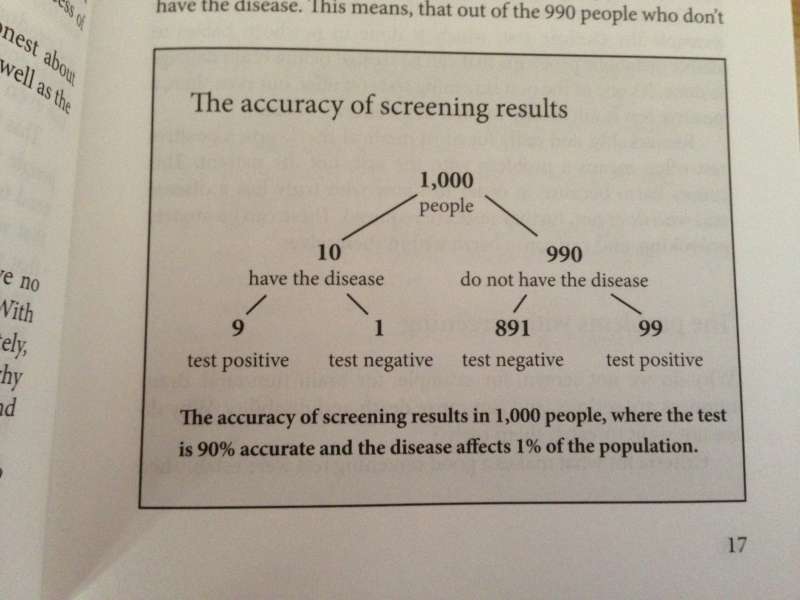Human beings are not cars. Plugging ourselves into a machine and running a few tests “just in case” can cause more harm than good….writes Dr Kailash Chand, deputy chair of the British Medical Association (BMA)
 Identifying illnesses before they happen or at an earlier stage of their progression must be good – and that screening for, for example, prostate cancer, heart disease and diabetes must improve our chances of living long and healthy lives.
Identifying illnesses before they happen or at an earlier stage of their progression must be good – and that screening for, for example, prostate cancer, heart disease and diabetes must improve our chances of living long and healthy lives.
It is no surprise therefore that there is a plethora of screening tests being offered – by the NHS and by private companies.
However, no matter what we might think….we are not cars. Plugging ourselves into a machine and running a few tests “just in case” can cause more harm than good.
You could be wrongly identified as having a condition due to an inaccurate test or you could be treated for a condition that you do have, but would never have caused you any harm in your lifetime.
What screening has done is, redefining of normal which accompanies health checks: This makes a major contribution to the NHS drugs bill and to side effects of men, but not to improving their health. This has happened over the years – with cholesterol, BP and ‘pre-diabetes.’
Over diagnosis and over treatment causes undue anxiety and unnecessary cost for the individual or NHS, something that a recent Cochrane review of health checks in the over 40’s found.
The authors concluded, ‘General health checks did not reduce morbidity or mortality, neither overall nor for cardiovascular or cancer causes, although the number of new diagnoses was increased. Important harmful outcomes, such as the number of follow-up diagnostic procedures or short term psychological effects, were often not studied or reported and many trials had methodological problems. With the large number of participants and deaths included, the long follow-up periods used, and considering that cardiovascular and cancer mortality were not reduced, general health checks are unlikely to be beneficial.’
Further, a large review by Danish authors, examining the results of screening tests across Europe and US concluded that “Doctors should not offer general health checks to their patients, and governments should abstain from introducing health check programmes and that current programmes, like the one in the United Kingdom, should be abandoned. ”
Of course this is easier said than done. Some doctors gain their income from screening tests and patients are used to coming in for tests and feel reassured when the tests are negative. For others it is counterintuitive to think that a test could cause them harm – even if the test were negative.
But indeed this is what they do. Take prostate cancer or example.
Movember is the month when men are asked to think about prostate cancer and raise money for it. But take two men with prostate cancer that began in 2009. One picked up in 2010 through PSA testing, the other picked up in 2013 because symptoms developed. They both die in 2015. It will look as though the man detected by screening lived for longer after his diagnosis compared with the man who was picked up through symptoms.
The screening didn’t actually extend life, but if we just count the years of survival after diagnosis it will look as though screening did lead to a longer life. Analysis of screening frequently falls into this trap, making it look far better than it is. We know from post mortum examinations that men are more likely to die with prostate cancer than of it and the harms of treating prostate cancer can we very serious (impotence, incontinence, pain). Another Cochrane review – this time looking at the over all benefit of prostate (PSA) screening found no benefit at all.
This didn’t stop annual men’s health campaign Movember from calling for men to have PSA screening in 2012.
It is important to remember that health screening is not for people with symptoms as it aims to identify ‘healthy’ people who are at risk of a condition before they start showing symptoms. If you have any health concerns you should speak to your GP in the first instance.
There is one test however, that men can use
A test that is safe
Free
Reliable
Repeatable
Safe
And has no side effects
A test that if positive indicates that a man is five times more likely to get diabetes, or three times the risk for colon cancer, and two and half times more likely to get heart disease….
A test that has the highest positive predictive factor for risk of developing strokes, diabetes and heart disease
That test is “can you see your manhood”
In conclusion the health checks are costly and ineffective. The screening reality – nicely captured in the photo below of a page from Margaret McCartney’s book “The Patient Paradox”
(Dr Kailash Chand is deputy chair of the British Medical Association (BMA) and has worked as a GP since 1983. He is ex-chair of Tameside and Glossop NHS)